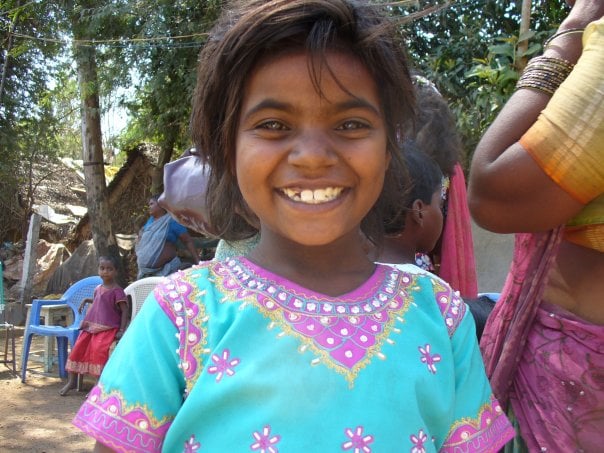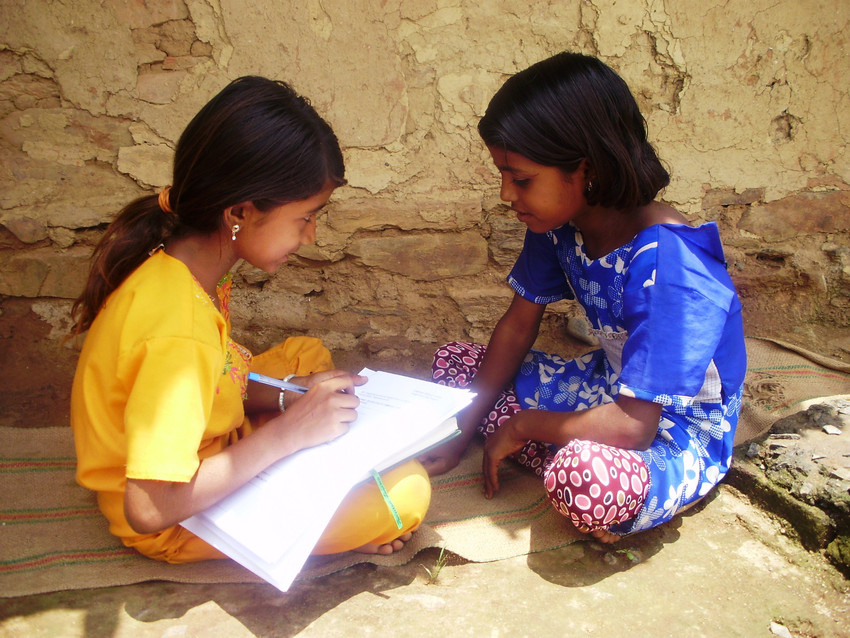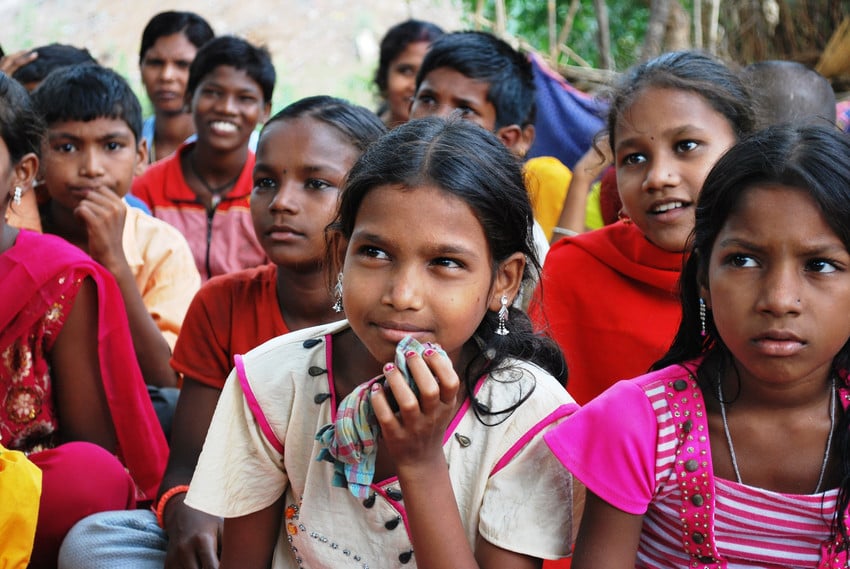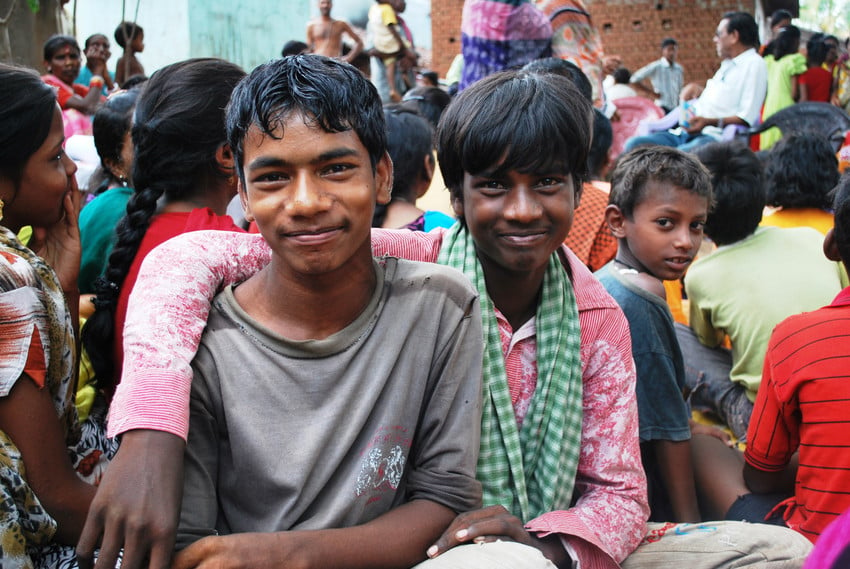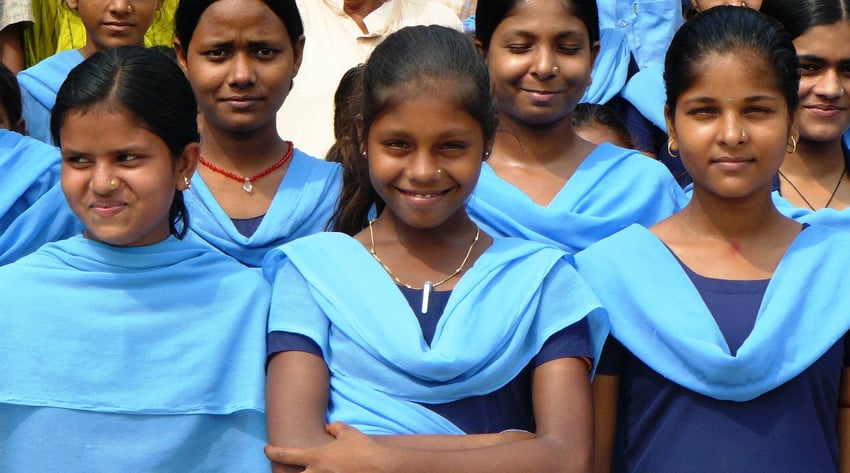
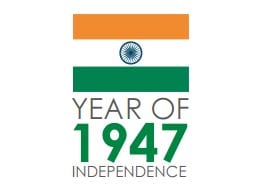
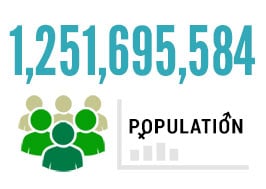
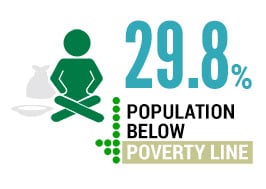
The story of India is one of growth, gains and gaps. Over the past two decades, India has witnessed accelerated economic growth, emerging as the world’s fourth-largest economy, although the benefits still elude a large segment of its people. Nearly 30 percent of India’s population — more than 372 million people — live below the world poverty line, but at the same time, the nation has a growing middle class with more career and educational options than ever before.
In terms of broad achievements, polio has nearly been eradicated, and India has seen increases in literacy rates and primary school enrollment. But there has been limited change in the practice of key behaviors related to child well-being, such as exclusive and early breastfeeding, immunization, hygiene and sanitation. Also, child labor, early marriage, gender-based violence and other issues related to child protection continue to be major challenges. Children in poor communities, whether urban or rural, lack many resources necessary to reach their full potential.
ChildFund has served children in India since 1951. Help make a difference and sponsor a child in India today.
Ages 0 – 5: Healthy and Secure
A healthy start for all children begins with prenatal care for mothers. In India, ChildFund focuses on malnutrition among infants and toddlers, starting with making sure pregnant women receive the treatment, training and healthy diets that they and their children need. In 2015, we conducted more than 2,000 workshops for mothers and other caregivers on nutritious diets and good hygienic habits, as well as other important skills. More than 6,000 children who were severely malnourished were upgraded to normal, and nearly 15,000 more children went from moderately malnourished to normal. We also saw a significant increase in the number of childbirths in hospitals in the targeted area (91 percent) compared to the national average of 80 percent. ChildFund offers early childhood development programs in many communities, helping prepare young children for school by teaching them social, cognitive and emotional skills. In coastal villages, we’ve started home-based programs for parents of children ages 3 and younger.
Ages 6 – 14: Educated and Confident
ChildFund India is working to improve education and literacy in communities where children come from homes with no books and no culture of reading. Through the Reading Improvement Program, we have started the Books, My Friends campaign to distribute age-appropriate books that are fun for children to read. Beginning in 2014, we distributed nearly 40,000 reading bags with several books for each child, and in the project’s second phase, we gave solar lanterns and chargers to 40,000 children whose homes lack electricity. Currently, ChildFund India is working to set up solar-powered model schools and libraries, as well as mobile libraries that will travel to remote regions. Other initiatives include community-based tutoring to improve 30,000 early grade-school children’s listening, reading and writing skills, and workshops in schools to teach children about hygiene, nutrition and life skills. ChildFund India and its partners are assessing the outcomes of these projects and working to uncover other ways to help more children learn to read and stay in school longer.
Ages 15 – 24: Skilled and Involved
ChildFund’s programs for youth focus on higher education, vocational training and life skills development. During 2015, more than 5,000 young people took training in these areas, and 107 have successfully started small businesses, while 672 found other good jobs. To encourage teens and young adults to become civically engaged, ChildFund India introduced its Youth Innovation Awards recently. Winners receive money for their youth clubs, which promote volunteerism and open discussion of problems affecting young people, like early marriage.
ChildFund India also offers the UDAAN project, a scholarship fund for girls and young women ages 16 to 24, in four regions. The program’s staff provide counseling, career guidance and financial assistance; 250 girls were awarded full scholarships in 2015 to cover tuition, books and supplies, and 800 others received different kinds of support.
Child Labor in India
India’s rapid economic growth in the past 30 years has produced opportunities for many, but it has also brought economic inequality on a large scale. In some places where ChildFund works in India, the result is widespread child labor, which places children in danger and deprives them of a full education.
The mining industry, for example, uses child workers because their small size allows them to fit into small underground spaces. It’s no place for a child to be, because of the short-term and long-term risks. Other children are taken from home and are forced to work in the cotton industry, and still others work in the bangle trade, welding glass bracelets over hot, smoky fires. In most cases, families have little choice but to involve children in their work, just to be able to support their households.
To combat the problem of child labor, ChildFund has taken different tacks. With local partners, we started a learning center in a village that was particularly notorious for children working alongside their parents, missing school most of the time. A young man volunteered to run the center and to encourage teachers, who sometimes weren’t showing up for work, to open a nearby middle school regularly. The learning center serves lunches, and today, children no longer go to work with their parents. Instead, they go to class.
In other regions, ChildFund assists parents with training for different jobs that pay higher wages, which help children remain in school and away from forced labor, and we provide scholarships for older students, who are often pressured to leave school to look after younger siblings, get married or go to work. With more time in school and in post-secondary studies, young women and men have greater opportunities to find well-paid, non-exploitative work as adults, a step away from poverty.

